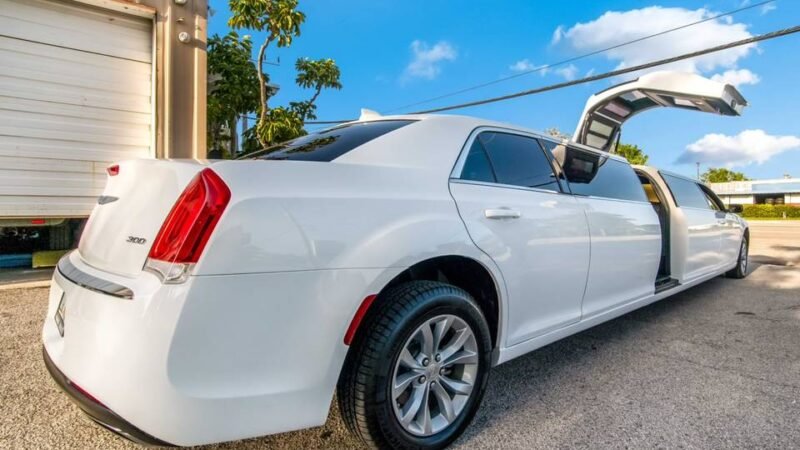German Cars for Short: A Guide to Iconic German Automobiles

Introduction
German Cars for Short: Germany has long been synonymous with automotive excellence, producing some of the most renowned and high-performance vehicles in the world. Whether it’s luxury, reliability, or engineering superiority, German cars dominate the global market. But when people refer to “German cars for short,” they often mean the prestigious brands that define this automotive powerhouse.
This article delves into the rich heritage, top brands, and unique characteristics of German cars, explaining why they remain the gold standard in the industry.
Table of Contents
The Legacy of German Cars
Germany has been at the forefront of the automotive industry for over a century. Home to some of the oldest and most innovative car manufacturers, the country is known for its precision engineering, cutting-edge technology, and performance-driven vehicles.
Engineering Excellence
One of the key reasons German cars stand out is their impeccable engineering. German automakers invest heavily in research and development, ensuring their vehicles are at the cutting edge of technology. Whether it’s safety features, aerodynamics, or fuel efficiency, German cars consistently outperform competitors.
Global Market Dominance
German cars are a common sight on roads worldwide, thanks to their superior build quality and performance. Their influence extends from luxury sedans to high-performance sports cars and even economical daily drivers.
Popular German Car Brands
When discussing “German cars for short,” several key brands come to mind. Each offers a unique blend of luxury, power, and reliability.
BMW (Bayerische Motoren Werke)
BMW is one of the most recognizable German car brands, known for its sporty and performance-oriented vehicles. Founded in 1916, BMW produces luxury sedans, SUVs, and high-performance sports cars.
Key Features of BMW:
- Ultimate Driving Machine philosophy
- Precision handling and power
- Advanced technology integration
Mercedes-Benz
A symbol of luxury and innovation, Mercedes-Benz is a pioneer in automotive design. Established in 1926, the brand has set high standards in comfort, (German Cars for Short) safety, and performance.
Key Features of Mercedes-Benz:
- Cutting-edge safety features
- High-end luxury interiors
- Hybrid and electric vehicle advancements
Audi
Audi is another powerhouse in the German automotive industry, renowned for its Quattro all-wheel-drive system and technological advancements. The brand balances performance with luxury, offering a wide range of models.
Key Features of Audi:
- Quattro all-wheel-drive technology
- Sleek and modern design
- High-performance S and RS models
Porsche
Porsche is a name that resonates with sports car enthusiasts. (German Cars for Short) Known for its legendary 911 model, Porsche combines speed with engineering precision, making it a top choice for performance lovers.
Key Features of Porsche: (German Cars for Short)
- Iconic sports car design
- Superior handling and acceleration
- Luxury combined with high-performance engineering
Volkswagen (VW)
Volkswagen is known for its practicality, affordability, and reliability. As one of the world’s largest car manufacturers, VW has produced iconic models like the Beetle and Golf.
Key Features of Volkswagen:
- Economical and reliable
- Strong focus on sustainability (EV models)
- User-friendly technology and features
What Makes German Cars Stand Out?
German cars have certain qualities that make them superior to many other brands worldwide. These features set them apart and contribute to their global appeal.
Performance and Handling
German automakers design vehicles with performance in mind. Whether it’s a BMW M series, an Audi RS model, or a Porsche 911, these cars provide an exhilarating driving experience.
Advanced Technology (German Cars for Short)
From infotainment systems to autonomous driving features, German cars lead in innovation. Features like Audi’s Virtual Cockpit, Mercedes’ MBUX, and BMW’s iDrive system showcase the technological superiority of these brands.
Durability and Reliability
German cars are built to last, with many models running efficiently even after hundreds of thousands of miles. This reliability makes them a preferred choice for both new and used car buyers.
Luxury and Comfort
Luxury is synonymous with German cars, with brands like Mercedes-Benz and BMW offering top-tier comfort features, including leather interiors, climate control, and customizable ambient lighting.
The Future of German Cars
As the automotive industry shifts towards electric and autonomous vehicles, German automakers continue to lead the way.
Electric Vehicles (EVs)
- BMW i-Series: BMW’s i-Series is an advanced line of electric cars that focus on sustainability without compromising performance.
- Audi e-Tron: Audi’s e-Tron series is a strong competitor in the EV market, offering high-tech features and impressive range.
- Volkswagen ID Series: VW’s ID series aims to provide affordable electric mobility solutions.
Autonomous Driving
German automakers are heavily investing in self-driving technology. Mercedes-Benz, BMW, and Audi are integrating advanced driver-assistance systems to enhance safety and convenience.
Conclusion
“German cars for short” refers to some of the finest automobiles in the world, known for their engineering precision, luxury, and performance. Brands like BMW, Mercedes-Benz, Audi, Porsche, and Volkswagen continue to set benchmarks in the industry, proving why German vehicles remain a top choice for car enthusiasts and everyday drivers alike.
With advancements in electric mobility and autonomous driving, the future of German cars looks more promising than ever. If you’re considering purchasing a vehicle that combines reliability, performance, and luxury, German cars should be at the top of your list.





